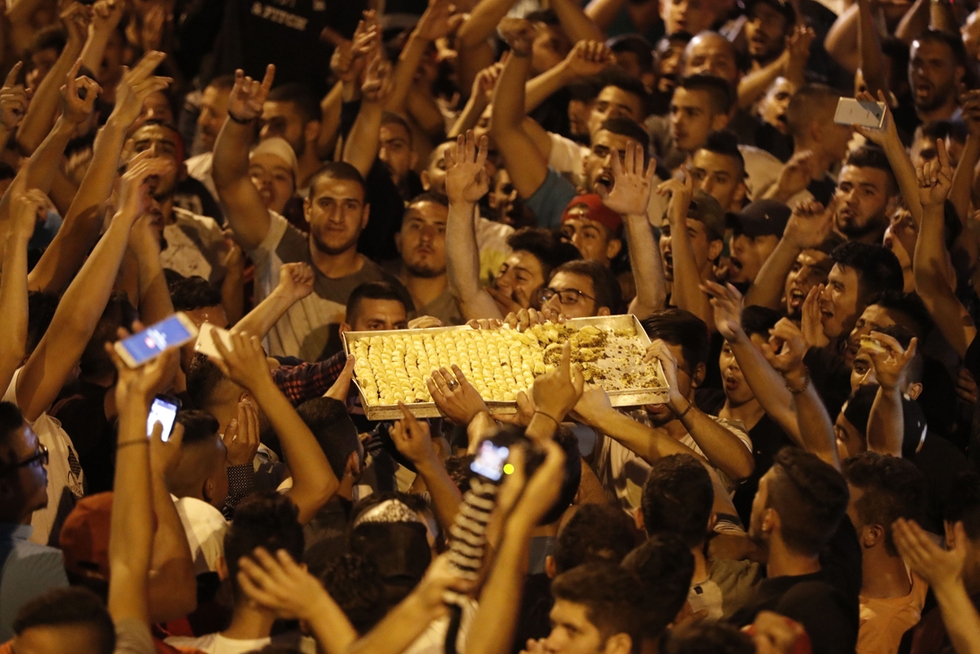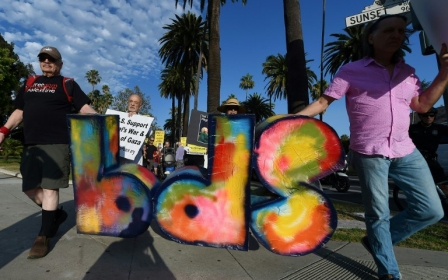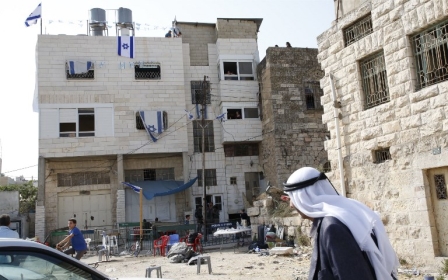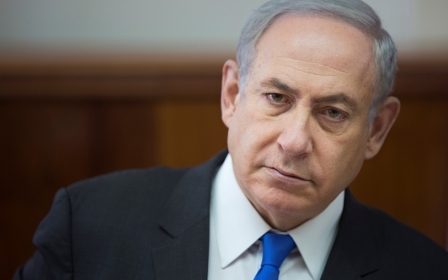Palestinians hail Israeli withdrawal from al-Aqsa

Palestinians took to the streets of Jerusalem in their thousands on Thursday, as Israel removed all security infrastructure it had installed around the Old City's al-Aqsa mosque compound.
Crowds danced and celebrated around the Lion's Gate entrance to the Noble Sanctuary, which for a week had been the flashpoint of protests over Israel's presence and perceived attempt to control access to Islam's third holiest site.
Israel had already dismantled metal detectors it installed in the area after the killing of two Israeli policemen on 14 July, hoping the move would calm 10 days of often-violent protests.
But separate security measures, including cameras and low metal gates, were left in place, angering Palestinian leaders and the population, who threatened a second "day of rage" on Friday. Most Muslims have avoided entering the compound in the past two weeks, praying instead in the streets.
Palestinians began to gather at the entrance to celebrate in the early hours of Thursday, with whistling and horns from cars.
Young men set off firecrackers as Israeli forces watched closely. Firas Abasi said he felt like crying over the "victory".
"For 12 days no one has slept, no one has done anything except [sit outside] the al-Aqsa mosque," he said.
Meanwhile, Jerusalem's grand mufti Muhammad Hussein announced on Thursday that the situation at the Noble Sanctuary has been restored and that prayers would resume at al-Aqsa mosque.
The standoff at the Noble Sanctuary has provoked some of the worst bloodsheds in Jerusalem for years, with peace efforts having stagnated since 2014.
Israeli forces have killed four Palestinians in fighting in the cramped streets of east Jerusalem in the last week, and a Palestinian stabbed three Israelis to death in their home.
Video shot overnight showed Israeli contractors dismantling gantries put up to hold security cameras and using forklift trucks to take away metal barriers from the marbled Lion's Gate entrance to the mosque compound.
Witnesses said all the security devices had been removed and crowds of Palestinians gathered in the early hours to celebrate. Police spokeswoman Luba Samri confirmed the removal.
"Everything that was installed after the attack (the killing of the two police officers) was taken down overnight," she said.
Muslim and political leaders were meeting to discuss the situation and determine whether they are satisfied.
The Waqf, the Jordanian-backed religious trust that administers the holy site, had declared its approval after Israel removed the metal detectors earlier in the week, but that did not reassure the public or political leaders.
Palestinian political factions issued statements supporting the Waqf announcement, which may help quell the unrest. Before the announcement, factions had been calling for a "day of rage" on Friday, which would probably have fuelled the violence.
It represents a climbdown by Israel, something Palestinian political factions were quick to highlight for leverage. A spokesman for Prime Minister Benjamin Netanyahu declined to comment on the decision.
Regional friction
The dispute was about more than security devices - taking in issues of sovereignty, religious freedom, occupation and Palestinian nationalism.
The Noble Sanctuary contains the al-Aqsa mosque, the third holiest shrine in Islam, and the golden Dome of the Rock. For Jews, the area is the site of two ancient temples, the second one destroyed by the Romans, and the holiest place in Judaism.
Israel captured east Jerusalem, including the Old City and the holy compound, in the 1967 war. It annexed the area and declared it part of its "indivisible capital".
That has never been recognised internationally, with the United Nations and others regarding east Jerusalem as occupied by Israel and maintaining that the status of the city can only be determined through negotiations between the parties.
Palestinians do not recognise Israel's authority in East Jerusalem, which they want as the capital of a future Palestinian state, and are extremely sensitive to the presence of Israeli security forces in and around the Noble Sanctuary.
When Israel installed the metal detectors it was seen as a fundamental change to long-standing security and access arrangements, referred to as the status quo, one of the most incendiary issues in the Israeli-Palestinian conflict.
Turkey's president, Recep Tayyip Erdogan, has accused Israel of damaging Jerusalem's "Islamic character", prompting a furious response from the Israeli foreign ministry, which accused the Turkish government of brutally repressing its Kurdish minority and of stifling democracy.
Saudi state media on Thursday claimed King Salman had solved the crisis - saying he had been in contact with the United States and other world powers to try to prevent the al-Aqsa mosque compound being closed to Muslims in a bid to defuse political and religious tensions.
New MEE newsletter: Jerusalem Dispatch
Sign up to get the latest insights and analysis on Israel-Palestine, alongside Turkey Unpacked and other MEE newsletters
Middle East Eye delivers independent and unrivalled coverage and analysis of the Middle East, North Africa and beyond. To learn more about republishing this content and the associated fees, please fill out this form. More about MEE can be found here.




